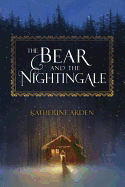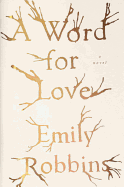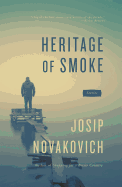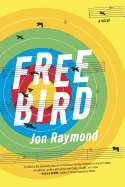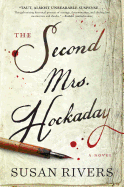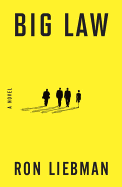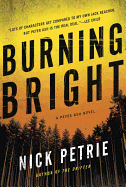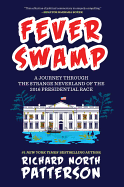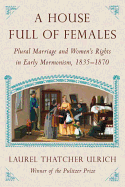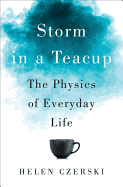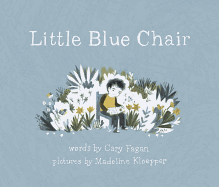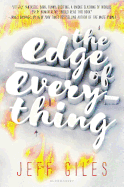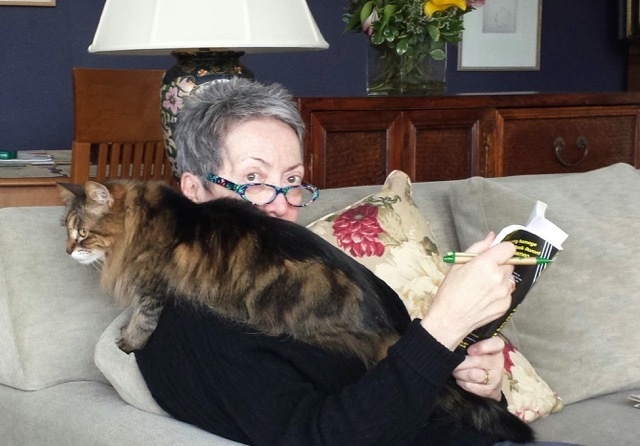 Marilyn Dahl has been editor at Shelf Awareness Pro and Shelf Awareness for Readers since 2005. She's retiring at the end of January.
Marilyn Dahl has been editor at Shelf Awareness Pro and Shelf Awareness for Readers since 2005. She's retiring at the end of January.
Books have been my passion ever since my great aunt taught me to read and took me to the library. Books have been my calling ever since my college boyfriend's faculty-wife mother finagled me a job at University Book Store in Seattle, where I grew up in so many ways under the tutelage of the late, great Lee Soper, Pat Soden and some very savvy women. After 20 or so years, and one retail Christmas too many, I moved to Pacific Pipeline, a regional book distributor. Nine years later, I went to work at Amazon, in a sketchy office across from a needle exchange and a wig store. Then I retired. In 2005, I was shanghaied by publisher Jenn Risko for what turned out to be an 11-year gig at Shelf Awareness. Last week, as I figured out where to stash my latest indie bookstore purchases (Indies First!), my husband said, "This place is becoming a monument to books." And the problem with that is...?
Filling out the Reading With questionnaire has been an incredibly difficult task. I have new appreciation for all who have done this for the Shelf. Really, I could drill down to "Favorite Female British Mystery Authors 1940-1960" but that way lies (a sweet) madness.
On your nightstand now:
Bipolar Faith by Monica A. Coleman, The Last Samurai by Helen deWitt, Upstream by Mary Oliver, The Trouble with Goats and Sheep by Joanna Cannon, Winged Histories by Sofia Samatar, My Darling Detective by Howard Norman, Envious Casca by Georgette Heyer, Her Every Fear by Peter Swanson. My nightstand has its own ZIP code.
Favorite book when I was a child:
Mara, Daughter of the Nile by Eloise Jarvis McGraw, Enid Blyton's books and the Mrs. Piggle-Wiggle series. I still re-read Mara; it has never palled.
Books I'm an evangelist for:
My two criteria: Have I given copies away? Would I never part with my own copy?
Brand new: The Girl in Green by Derek B. Miller and This Is How It Always Is by Laurie Frankel.
Recently: A Gentleman in Moscow by Amor Towles and Good Morning, Midnight by Lily Brooks-Dalton. Lily and the Octopus by Steven Rowley. Boy, Erased by Garrard Conley. Underground Railroad by Colson Whitehead and Underground Airlines by Ben Winters.
From the (recent) past: Fire Shut Up in My Bones by Charles Blow, Barbara Brown Taylor's An Altar in the World, Last Night at the Lobster by Stewart O'Nan, A Man Called Ove by Fredrik Backman, Love Wins by Rob Bell, All the Light We Cannot See by Anthony Doerr, Matterhorn by Karl Marlantes, Peace Like a River by Leif Enger, Ordinary Grace by William Kent Krueger, The Song of Achilles by Madeline Miller.
Authors I'm an evangelist for:
Frederick Buechner, Ron Carlson, Edmund Crispin, Michel Faber, Robert Goddard, Ross Macdonald, Brian McLaren, Robert B. Parker, Marilynne Robinson, Robert van Gulik, Patricia Wentworth, Mary Wesley, Colson Whitehead, Connie Willis.
Please write another book: Leonie Swann, Rachel Howzell Hall, Karl Marlantes, Charles Blow, Ta-Nehisi Coates.
Book I hid from my parents:
None, but I read under the covers a lot. My parents were more concerned about a proper bedtime. My mom was slightly concerned about Gone with the Wind, but I got three book report credits for it, and an A+, so....
Favorite lines from three books:
"I am a frayed and nibbled survivor in a fallen world, and I am getting along. I am aging and eaten and have done my share of eating too. I am not washed and beautiful, in control of a shining world in which everything fits, but instead am wandering awed about on a splintered wreck I've come to care for, whose gnawed trees breathe a delicate air, whose bloodied and scarred creatures are my dearest companions, and whose beauty beats and shines not in its imperfections but overwhelmingly in spite of them, under the wind-rent clouds, upstream and down." --Annie Dillard, Pilgrim at Tinker Creek
"If you show someone something you've written, you give them a sharpened stake, lie down in your coffin, and say, 'When you're ready.' " --David Mitchell, Black Swan Green
"Sometimes you can hear the wire, hear it reaching out across the miles; whining with its own weight, crying from the cold, panting at the distance, humming with the phantom sounds of someone else's conversation." --David Bradley, The Chaneysville Incident
Favorite book of poetry:
Any Billy Collins, Mary Oliver, Christian Wiman, Lucille Clifton. O Holy Cow by Phil Rizzuto, Baseball Haiku by Cor van den Heuvel and Nanae Tamura.
Books that make me laugh:
Three Men in a Boat by Jerome K. Jerome (and its time travel homage, To Say Nothing of the Dog by Connie Willis); and in the spit-out-your-coffee category, Big Trouble by Dave Barry. The Rook by Daniel O'Malley.
Best classic discovered late in life:
To Kill a Mockingbird by Harper Lee.
Book I bought for the cover:
Balzac and the Little Chinese Seamstress by Dai Sijie. Luminous.
Books that changed my life:
Soul Survivor by Philip Yancey, Love Wins by Rob Bell. Yancey pulled me out of a guilt-ridden fundamentalist childhood, and Bell gave me a profound hope. The Blue Hammer by Ross Macdonald. When I was a young bookseller, I was a literary (but not especially literate) snob. One day, I made a disparaging remark about the New York Times reviewing Macdonald, who was "merely" a mystery writer. Marcie Kembel, my adored mentor, took me to task and dared me to read The Blue Hammer. I discovered the joy of mysteries. Religion and mysteries--a natural combo. Numinous.
Favorite titles (as titles):
A Drink Before the War by Dennis Lehane.
Dino: Living High in the Dirty Business of Dreams by Nick Tosches.
Favorite opening lines:
"Down in Mobile they're all crazy, because the Gulf Coast is the kingdom of monkeys, the land of clowns, ghosts and musicians, and Mobile is sweet lunacy's seat." --Eugene Walter, The Untidy Pilgrim.
"Dr Weiss, at forty, knew that her life had been ruined by literature." --Anita Brookner, A Start in Life.
Reading with... Marilyn Dahl
 I've reviewed hundreds of books, interviewed wonderful authors, written myriad columns, edited thousands of words and worked with wonderful people. The fabulous Jenn Risko and John Mutter, of course. My co-conspirator Dave Wheeler. They and my other co-workers have given me some of the best years of my book life. Not to mention our ace reviewers, and the publicists who labor tirelessly for their authors--their enthusiasm and patience made my job easier (and usually fun).
I've reviewed hundreds of books, interviewed wonderful authors, written myriad columns, edited thousands of words and worked with wonderful people. The fabulous Jenn Risko and John Mutter, of course. My co-conspirator Dave Wheeler. They and my other co-workers have given me some of the best years of my book life. Not to mention our ace reviewers, and the publicists who labor tirelessly for their authors--their enthusiasm and patience made my job easier (and usually fun).


 Marilyn Dahl has been editor at Shelf Awareness Pro and Shelf Awareness for Readers since 2005. She's retiring at the end of January.
Marilyn Dahl has been editor at Shelf Awareness Pro and Shelf Awareness for Readers since 2005. She's retiring at the end of January.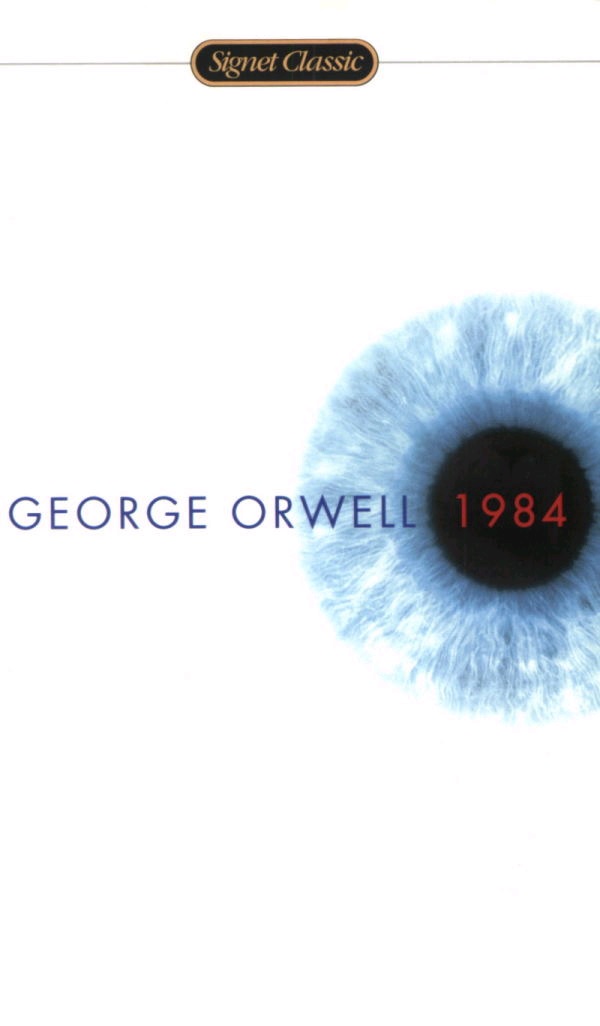 The phrase "alternative facts," used by Presidential adviser Kellyanne Conway on Meet the Press nine days ago, helped propel George Orwell's 1984 to the top of many bestseller lists and led Penguin to go back to press for another 75,000 copies of the Signet Classics mass market edition of the book. The phrase clearly touched a nerve with readers, perhaps because it recalls various assaults on critical thinking exemplified in Orwell's dystopian masterpiece that was originally published in 1949.
The phrase "alternative facts," used by Presidential adviser Kellyanne Conway on Meet the Press nine days ago, helped propel George Orwell's 1984 to the top of many bestseller lists and led Penguin to go back to press for another 75,000 copies of the Signet Classics mass market edition of the book. The phrase clearly touched a nerve with readers, perhaps because it recalls various assaults on critical thinking exemplified in Orwell's dystopian masterpiece that was originally published in 1949.